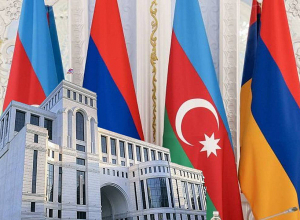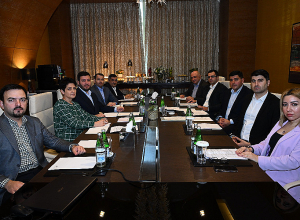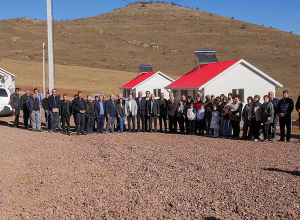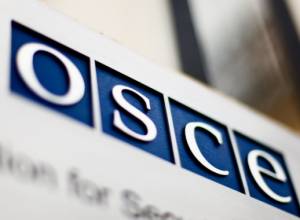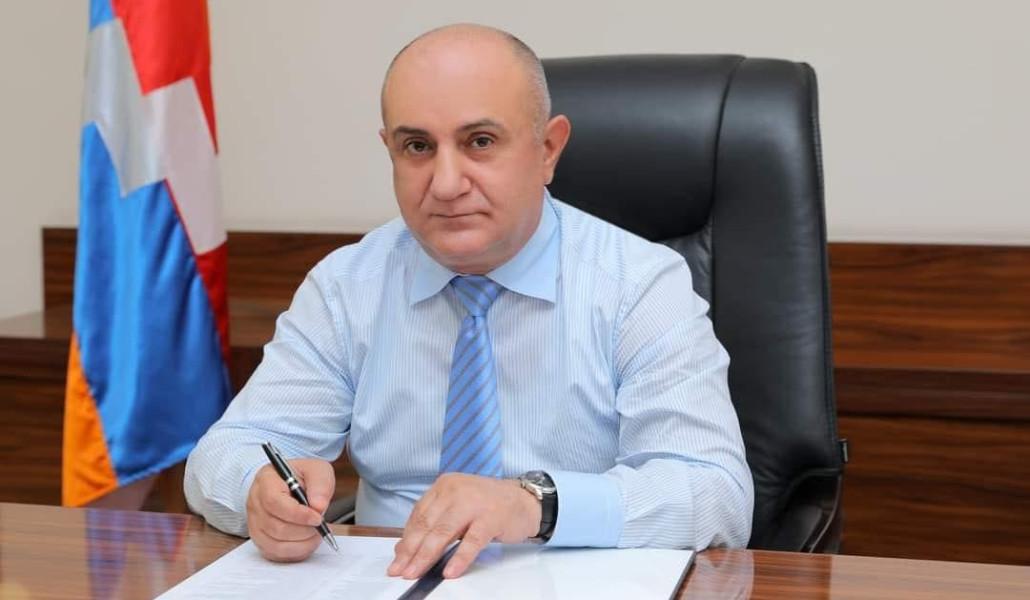
Potential for Armenia’s Positioning in the Context of Geopolitical Processes. Samvel Babayan
Support A1+!Potential for Armenia’s Positioning in the Context of Geopolitical Processes
An objective study of the confrontation between the collective West and Russia and the subsequent processes of redrawing the geopolitical architecture leads to the conclusion that this conflict allows, on the one hand, the logistical integration of Central Asia/Turkic-speaking countries and the South Caucasus, and on the other hand, opens up the prospect of the withdrawal of these same entities from-under Russia's sphere of influence, based on their common interests. In both cases, due to its geolocation and political orientation towards security, Armenia actually becomes an “obstacle”, especially with the starting point of Meghri infrastructures.
In this context, there are three potential options for the possible positioning of the Republic of Armenia.
Part 1
Potential for Armenia’s Positioning in the Context of Geopolitical Processes; Western Vector
Opening of the Meghri road in a simplified manner under the jurisdiction of the Republic of Armenia as part of the agreements on unblocking the regional infrastructure.
Azerbaijan has linked its development strategy with the economic, political and military integration of the Turkic-speaking countries, with a regional and extra-regional transit perspective, from which Turkey benefits most, with the prospect of becoming a logistics and military-industrial superpower. In this context, the West's approach to this alliance is to promote the membership of Armenia and Georgia as a counterweight to Russian influence in the South Caucasus and Central Asia. China, in its turn, again bypassing Russia, plans to gain access to the European market through transit Central Asia - Caspian Sea - Azerbaijan - Armenia (Meghri) - Nakhichevan - Turkey.
The opening of the Meghri road is Iran’s “red line”, since in the case of a direct connection between Azerbaijan and Nakhichevan through Meghri, Iran’s influence on Nakhijevan, and, therefore, on the whole of Azerbaijan, will be reduced to zero. In this context, the statements of the Azerbaijani side about “Plan B” through the territory of Iran are clearly manipulative, since from 1989 to the present day, Azerbaijan not only communicates with Nakhichevan through the territory of Iran, but also supplies Nakhichevan. In this regard, it should be noted that Armenia can and should show mutually beneficial mediation between European countries and the United States, convincing them to ease sanctions against Iran, so that the latter, in its turn, reconsiders its own position on the opening of the Meghri road, since the West will not be able to cover its needs in blue fuel with a simultaneous policy of isolation in relation to both Russia and Iran.
A revision of Iran's position will create the possibility of alternative gas supplies to Europe: Turkmen and Iranian gas will be transported via the Armenia - Georgia - Black Sea - Bulgaria pipeline as an alternative to Russian gas (the gas resources of Turkmenistan and Iran together run to 30% of proven gas reserves). In this matter, China is again an interested party and hopes to provide alternative gas supplies from Russia at a low price, since the latter will have no alternative due to the loss of the European market.
Since Georgia is a transit country and a significant part of its budget is formed through transit fees, it will be the first to suffer from the opening of the Meghri road. In this case, Georgia will obviously pursue a tough policy towards Armenia and double transit fees to compensate for possible economic losses. However, since Turkmen and Iranian gas will be transported via the Armenia - Georgia - Black Sea - Bulgaria pipeline, socio-economic losses will be compensated a priori.
Overcoming these obstacles that Russia is initiating against Armenia may be possible with the “mediation” of Azerbaijan.
Azerbaijan, in particular, must ensure gas supplies to Armenia at the same prices as Russia. Armenia should also be able to carry out safe cargo and passenger transportation through the territory of Azerbaijan to Russia and Central Asia. The collective return of the people of Artsakh to NK with the status of autonomy within Azerbaijan is a solution that will create an atmosphere of mutual trust between the Armenian and Azerbaijani peoples. Either Armenia, in cooperation with the international community, must solve the problems of forcibly displaced persons from NK so fundamentally that in the future other forces will not be able to use the population of NK for geopolitical purposes.
Turkey, in its turn, must open the border with Armenia and ensure unhindered land, air, sea passenger and cargo transportation and, accordingly, trade turnover through its territory.
In parallel with all this, the collective West must make decisions regarding the external debt of the Republic of Armenia, zeroing out loans received from international organizations and foreign countries in order to implement socio-economic programs. Thus, Armenia will have the opportunity to direct financial resources (aimed at paying off the external debt) to the border guard, smoothly refusing from the Russian border guards’ assistance, since it will be able to independently carry out the protection and defense of its own borders.
Logistical and economic integration of the Turkic-speaking peoples will help remove the market of the South Caucasus and Central Asia with a population of 85 million people from Russian influence․ This, in its turn, will form soft arguments for the subsequent accession of Armenia and Georgia to the European Union. The creation of a Turkish economic union will be followed by Azerbaijan's open struggle to join the 25 million ethnic Azerbaijanis living in Iran, which will be supported by Turkey and other Turkic-speaking countries. As a result, serious preconditions will be created for undermining Russian and Iranian statehood, which is the ultimate goal of the integration of Turkic-speaking countries.
